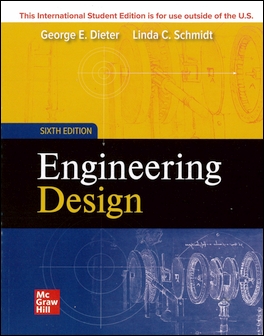書籍分類

Engineering Design 6/e
作者:George E. Dieter, Linda C. Schmidt
原價:NT$ 1,100
內容介紹 本書特色 目錄 作者介紹
- Description
Engineering Design, 6th edition, continues its tradition of presenting an in-depth foundation of the engineering design process. In addition, it emphasizes material selection and design for manufacture, with the overarching goal of design quality. The teaching of the engineering design process has been made more coordinated by reorganizing some of the chapters. The text is intended for use in either a junior or senior engineering design course as well as a graduate-level course on the design process.
Sensitive to the cost of textbooks, we have significantly reduced the length of the text using the McGraw-Hill Online Learning Center (OLC) (www.mhhe.com/dieter6e). The OLC is home to some of the more specialized chapters, such as Design for the Environment and Economic Decision Making.
The book offers a detailed introduction to the design process in chapters 1-9 and follows up with expanded coverage of specialty design topics in chapters 10-14. In this edition, additional content has been provided in chapters 15- 18, available on the OLC.
分類位置:
理工 > 機械工程 > 機械設計


